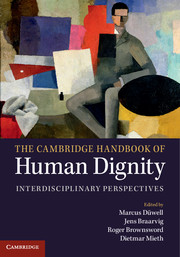Wednesday, 28 May 2014
Monday, 26 May 2014
Friday, 16 May 2014
Kontroverse und Kompromiss: Der Pfeilerbildzyklus des Mariendoms und die Kultur der Bikonfessionalität im Erfurt des 16. Jahrhunderts
Tagung am 23. und 24 Mai 2014 in Zusammenarbeit von Universität Erfurt (Max-Weber-Kolleg), dem Erfurter Angermuseum und dem Bistum Erfurt
Die Tagung dient der Vorbereitung der Ausstellung "Kontroverse und Kompromiss - Die Pfeilerbilder im Dom zu Erfurt" (Erfurt, 16. Mai bis 23. August 2015).
Der Pfeilerbildzyklus des Erfurter Doms ist das bedeutendste aus der Reformationszeit in Erfurt erhaltene Gemäldeensemble, das – v.a. wegen der dargestellten „katholischen“ Themen (Gregorsmesse, Hostienmühle, Himmelfahrt Mariens etc.) und der kontinuierlich-planvollen Entstehung des Zyklus von 1505 bis ca. 1570 – die besondere religiöse und kulturelle Situation von Stadt, Kirche und Universität im 16. Jahrhundert reflektiert: in den Jahren unmittelbar vor der Reformation, während der religiösen Auseinandersetzungen und seit den Maßnahmen für ein geregeltes Neben- und Miteinander der beiden Konfessionen. In der Tagung wird danach gefragt, wie Altgläubige und „Lutherische“ Erfurts in diesen Jahren in Wort und Bild ihre Glaubenspositionen zu verdeutlichen versuchten und welche Rolle Kunst unter den Bedingungen der entstehenden Bikonfessionalität hatte, also auch und gerade nach der Darstellung „verbindender“ Themen.
Neben den historischen Rahmenbedingungen soll es um die Stifter der Pfeilerbilder, größtenteils Kanoniker des Marienstiftes und teils Lehrer an der Universität Martin Luthers, gehen. Kunstgeschichtlich einzigartig ist die konvexe, den Langhauspfeilern angepasste Form des Zyklus. Sowohl die Funktion dieser Bilder, vermutlich Epitaphien, als auch ihre Ikonographie und ihre identifizierbaren Künstler bzw. Werkstätten sind zu studieren. Da Formen und Stile teils nach Nürnberg, teils nach Sachsen und teils nach Mainz weisen, wird der Zusammenhang der politischen und kulturellen Einflüsse, denen Erfurt ausgesetzt war, diskutiert. Daneben soll es, schon wegen der lateinischen Inschriften, auch um den Anteil humanistischer Elemente gehen. In Zusammenhang damit werden die Erfurter Druckkultur sowie die überregionale Vernetzung der Gelehrten und der mit ihnen verbundenen Künstler angesprochen. Ziel ist es, anhand des hochbedeutenden, in dieser Hinsicht bislang aber kaum studierten Fallbeispiels in Erfurt die Interaktion der Künste mit der politischen und religiösen Geschichte des Zeitraums anschaulich zu machen.
Das aktuelle Programm (vom 17/05/2014)
Das aktuelle Programm (vom 17/05/2014)
Monday, 12 May 2014
One-Day Workshop on "Marcion as Religious Entrepreneur"
Rather a workshop in the strict sense - not a showcasing of research, but an intense day of reflection and peer criticism and mutual enlightenment, Joerg Ruepke, Jan Bremmer and Markus Vinzent (all at the moment MWK, Erfurt, Germany) are running this one-day workshop on 26 June 2014.
There are only 25 places available, so, if you want to take part at this workshop, please let Markus Vinzent know as soon as possible.
Date: 26. June 2014
Venue: Villa Martin, Campus of the University of Erfurt
Programme
10.00 Opening (Jörg Rüpke/Jan Bremmer/Markus Vinzent, MWK, Erfurt)
Part I Marcion’s Gospel
10:15-11:00 Marcion’s Gospel – Reconstructed (Matthias Klinghardt,
Dresden)
11:00-12:00 2/3 Respondents:
- Angela Standhartinger, Marburg
- Nicola Denzey, Rhode Island 10:15-11:00 Marcion’s Gospel – Reconstructed (Matthias Klinghardt,
Dresden)
11:00-12:00 2/3 Respondents:
- Angela Standhartinger, Marburg
with discussion
12:00-13:00 Discussion of sample texts of the reconstructed Gospel
13:00-13:45 Lunch break
Part II Marcion – a religious entrepreneur
13:45-14:30 Marcion and Peregrinus (Jan Bremmer, MWK Erfurt)
14:30-15:15 Marcion, Founder of Christianity (Markus Vinzent, MWK Erfurt)
15:15-16:00 Marcion and the Synoptics (Eve-Marie Becker, MWK Erfurt)
14:30-15:15 Marcion, Founder of Christianity (Markus Vinzent, MWK Erfurt)
15:15-16:00 Marcion and the Synoptics (Eve-Marie Becker, MWK Erfurt)
16:00-16:30 Coffee/Tea Break
Part III Marcion and the Second Century
16:30-18:30 Short papers (15/20m plus discussion):
Narratives and Textual Communities (Jörg Rüpke, MWK Erfurt)
The Pastoral Letters and Marcion (Harry Maier, MWK Erfurt) (tbc)Martyrdom and Marcionites (Katharina Waldner, MWK Erfurt) (tbc)
19:00 Dinner
Saturday, 10 May 2014
“But wait!”, you ask, “that’s what Marxists have been saying years”, review of Hartmut Rosa's "Social Acceleration"
Eugene Wolters, in his review of Harmut Rosa’s latest book Social Acceleration: A New Theory of Modernity
“But wait!”, you ask, “that’s what Marxists have been saying years.” After all, it’s the technological development of capitalist production that undergirds all of this accelerating business. Advances in computers, transportation and machinery are all pushed by the capital’s quest to squeeze more surplus value out of its laborers.' But he continues: '
But what Rosa is arguing is far more nuanced, and somewhat contradictory, to the Marxist argument. He argues:
However, this kind of reductionistic interpretation seems inadequate on two grounds. In the first place, it is precisely not capable of clarifying the process that mediates between economic structural imperative and subjective acceleration of their consumption behavior and thus their pace of life when for them it is not only the case that they have no economic incentive to do so but also that it would land them in financial difficulty…In the second place, the materialistic reduction remains blind to the ideational and cultural presuppositions of the unleashing of the forces of production and acceleration, as the representatives of a cultural criticism of the economic primacy thesis would argue.Amid all of this talk of acceleration, that are in fact zones of strategic “deceleration” that serve ideological purposes. “Unplugging” oneself from technology, the proliferation of yoga and meditation, and the recreational return to the “old ways” of woodworking, fishing, hunting etc are all ideological tools to offset the havoc that social acceleration has wrought on our society.'
To read the entire review, go here.
Subscribe to:
Posts (Atom)









